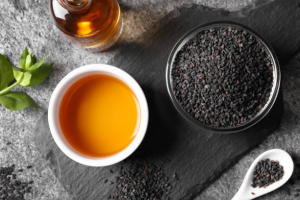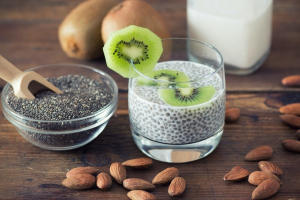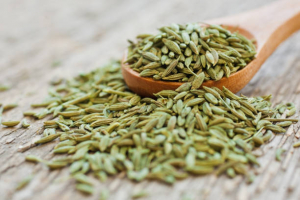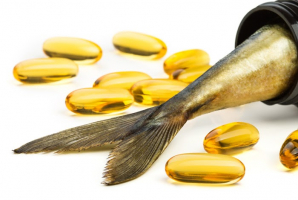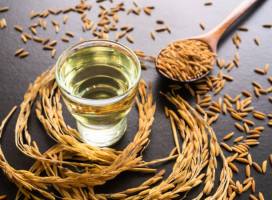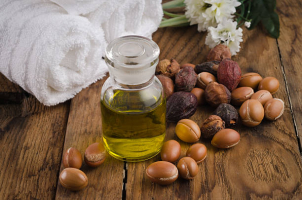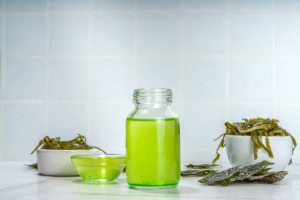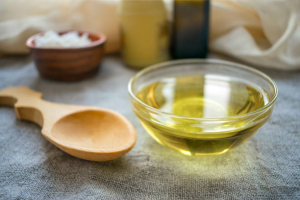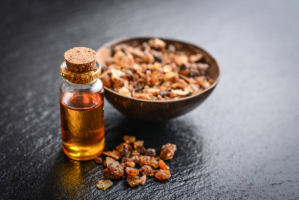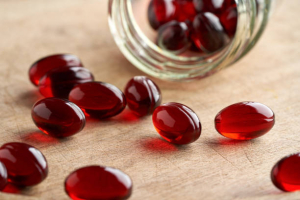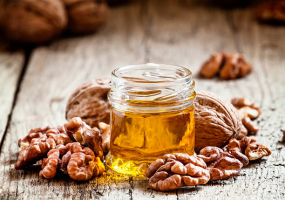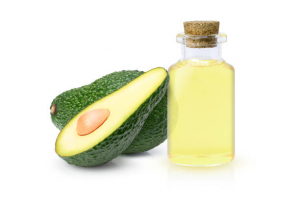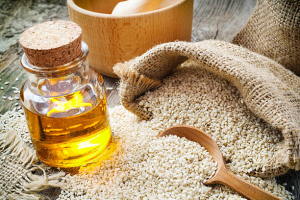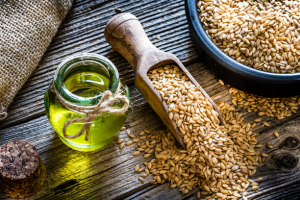Top 8 Health Benefits of Chia Seed Oil
Chia seeds have gained popularity recently due to their excellent nutritional content and advantages for the skin. Chia seed oil is a multipurpose ingredient ... read more...that is utilized as a tasty and healthy substitute for olive oil in kitchens all over the world as well as a powerful anti-aging component in the skin care sector. Here are the best health benefits of chia seed oil.
-
Due to its high fatty acid content, the chia seed oil is a popular component in skin care products. Alpha-linolenic acid (ALA), an omega-3 fatty acid, omega-6, and lower levels of other good fats like oleic acid and stearic acid are all concentrated in the oil. A diet rich in these fats is associated with a healthier skin membrane, defense against ultraviolet (UV) radiation, and improved skin hydration, which lessens the appearance of fine wrinkles. These benefits are in addition to its topical use.
So utilizing chia seed oil-based skin care products and ingesting food-grade chia seed oil may help keep your skin looking young. Its topical use is good for those with dry to combination skin, however, people with oily skin may find it comedogenic, or pore-clogging. In order to lessen the possibility of irritation or breakouts, it is advisable to use chia seed oil products that are specifically designed for use on the skin. They are available online and in the majority of shops that sell skincare items.
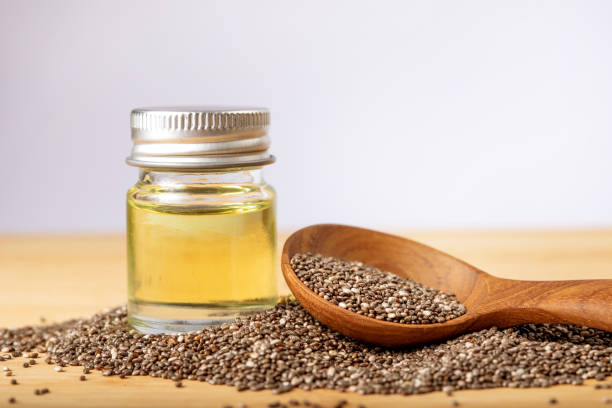
May prevent premature skin aging 
May prevent premature skin aging -
Rich layers of lipids (fat) cover healthy, well-hydrated skin to help keep moisture in. Yet fluid can exit the skin and cause dryness if this layer has been damaged or is lacking in fat. Omega-3 fatty acid ALA and omega-6 fatty acid linoleic acid is abundant in chia seed oil. It has been demonstrated that these two good fats can aid in restoring the skin's moisture barrier, particularly in those who suffer from dry skin disorders including psoriasis and atopic dermatitis.
A 4-percent chia seed oil was given topically to dry skin for eight weeks to two sets of people with dry skin: five healthy participants and five participants with itchy skin brought on by end-stage renal disease or diabetes. Both groups had a noticeable improvement in their overall skin hydration, and felt itching, and dry skin at the conclusion of the trial. Even though the trial was limited, it demonstrated the potential advantages of chia seed oil for dry skin. Since your skin absorbs water most effectively just after a shower or bath, applying chia seed oil to your skin at this time will yield the finest effects.
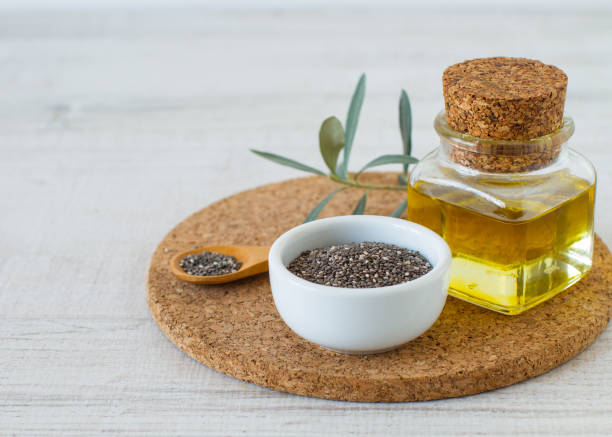
May relieve dry skin 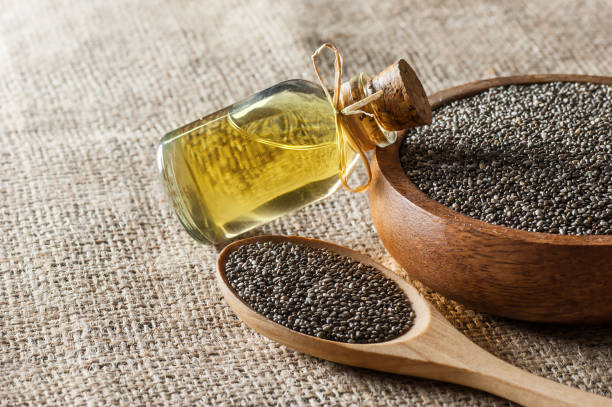
May relieve dry skin -
Lack of moisture in the cuticle, which is the hair's outermost layer, causes frizzy hair. The cuticle of extremely dry hair becomes rough and swells, giving the hair a frizzy look. Numerous fatty acids included in chia seed oil can enter the hair shaft and lock in moisture. As a consequence, the hair becomes softer, smoother, and more moisturized.
Additionally, maintaining a firm and moisturized hair shaft will help stop future breakage to make your hair longer and healthier. Apply a tiny quantity to slightly moist hair for the greatest effects, or use it as a touch-up on dried hair. Despite claims from certain sources to the contrary, chia seed oil does not increase hair growth despite having a high protein concentration. It has a very low protein content given that it is an oil. To encourage hair development, choose to eat chia seeds and other protein-rich meals.
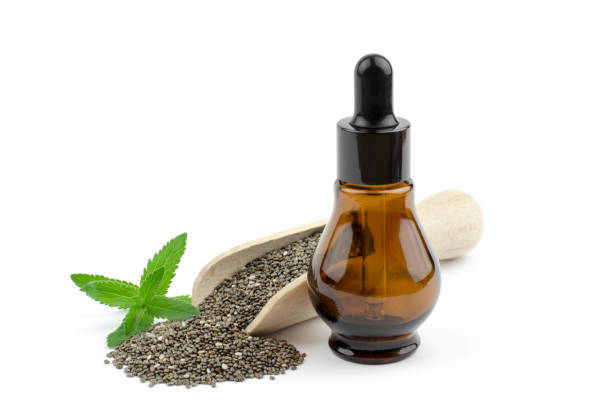
Reduces frizzy hair 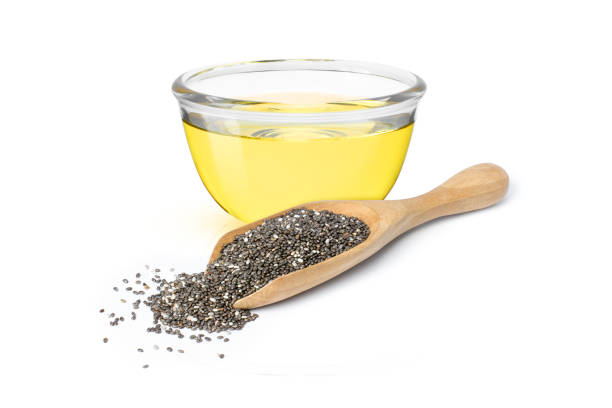
Reduces frizzy hair -
Although the degree to which this is true may vary depending on your hair's unique texture, healthy hair is often glossy and smooth. Hair that is dry and damaged cannot reflect light, giving it a dreary appearance. Make sure your hair is properly moisturized and free of breakage or damage to produce a healthy shine.
Many civilizations utilize chia seed oil as a natural hair product. Due to its high fatty acid content, which may permeate the hair shaft, the hair is able to retain moisture and exhibit its natural shine. Chia seed oil is a great source of healthy lipids that may keep hair looking shiny and moisturized.
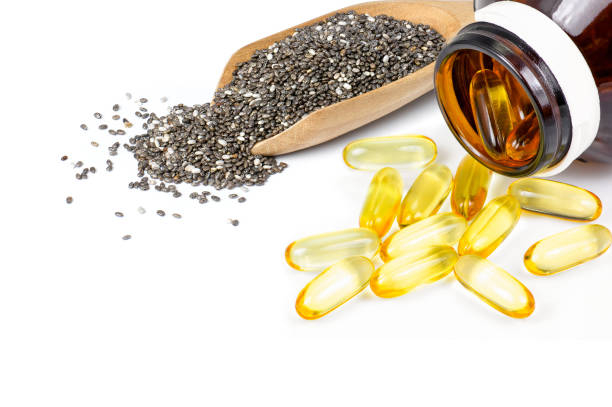
Promotes shiny hair 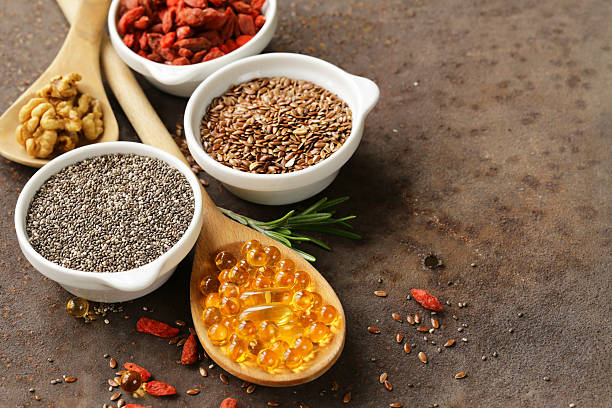
Promotes shiny hair -
Chia seed oil contains ALA, a plant-based omega-3 fatty acid that must be obtained from the diet because it is not produced by the body. Eicosapentaenoic acid (EPA) and docosahexaenoic acid (DHA), two additional omega-3s linked to better heart health, is produced with the assistance of ALA. If you wish to improve your intake of omega-3s, you could benefit from switching to chia seed oil as the two often used salad oils are both low in omega-3s: olive and vegetable oil. However, it doesn't work well for cooking because it has a low smoke point.
It's uncertain if chia seed oil has the same benefits as chia seeds, despite some research suggesting that ingesting chia seeds may lower cholesterol, waist circumference, and heart disease risk. This is due to the removal of fiber, which is also good for heart health and weight management. Additionally, keep in mind that oils, like chia seed oil, are extremely concentrated sources of calories, so it's crucial to pay attention to your portion sizes. However, increasing your consumption of omega-3 fatty acids from a range of dietary sources can be a terrific strategy to support your heart health.

May improve heart health 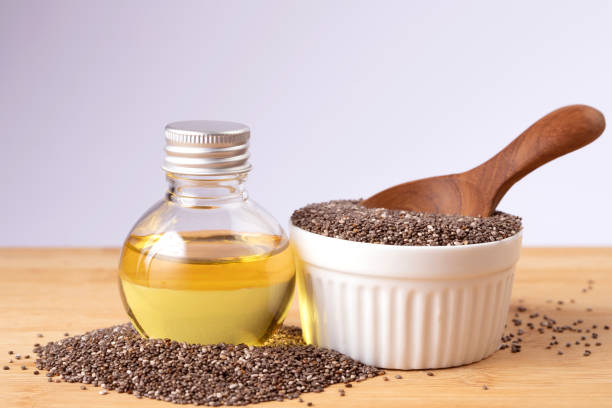
May improve heart health -
Chia seed oil's strong omega-3 concentration may enhance brain function. All forms of omega-3 — ALA, EPA, and DHA — may have advantageous and neuroprotective effects on the brain, which may lower the risk of stroke, Alzheimer's disease, depression, and other neurological illnesses. This has been demonstrated in several studies. Increasing your omega-3 intake from a range of dietary sources may help maintain your brain healthy even if there are no studies that explicitly link chia seed oil to better brain health and additional study is required.
Chia seeds contain omega-3 fatty acids, which are helpful for protecting your liver. The omega-3 fatty acid guards against dyslipidemia, fatty liver disease, and lipotoxicity. Animal research revealed the mechanism through which chia seeds improve insulin resistance and dyslipidemia. In this study, the chia seed's omega 3 fatty acid stopped lipotoxicity from infecting the heart muscles. Chia seeds typically avoided lipotoxicity by reducing plasma fat levels. Alpha-linolenic acid from chia redistributes lipids away from the liver and shields it from illnesses, according to research. Consequently, fatty liver disease risk is reduced. Additionally, alpha-linolenic acid normalizes the activity of many liver enzymes.
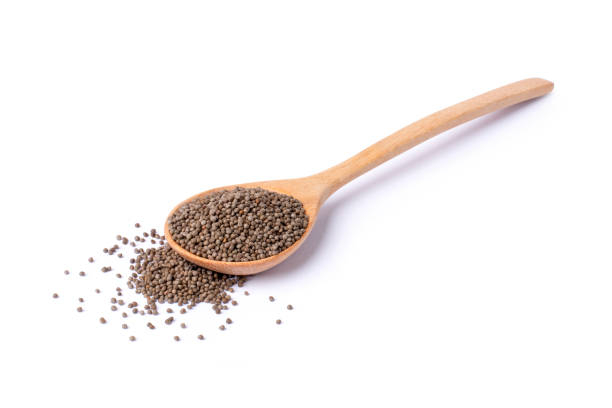
Improve brain and liver functioning 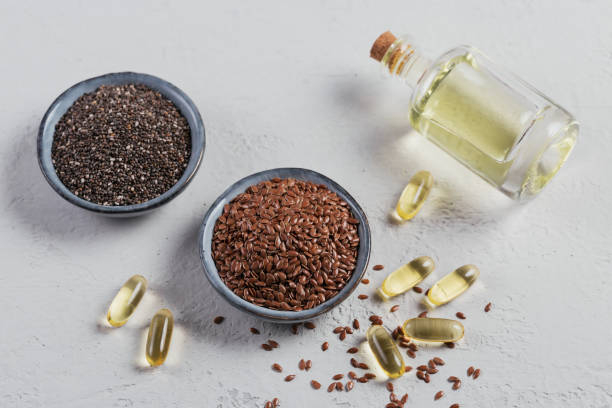
Improve brain and liver functioning -
Diabetic people might benefit from chia as well. Numerous studies have demonstrated the value of chia's omega 3 fatty acid in the treatment of diabetes. Chia seeds' anti-inflammatory properties are highly helpful in the treatment of diabetes. Humans were used in a study to demonstrate the usefulness of chia in regulating blood glucose levels both before and after meals. Controlled blood sugar levels also decreased blood pressure and chronic inflammation. Chia seeds are therefore helpful for heart and diabetic conditions. Additionally, alpha-linolenic acid aids in lowering systolic blood pressure and C-reactive protein, two markers of artery inflammation.
For pregnancy, omega-3 fatty acids are beneficial. Alpha-linolenic acid is abundant in chia oil. Docosahexaenoic acid is a precursor of alpha-linolenic acid (DHA). Throughout pregnancy, this acid is crucial. This acid is essential for the development of the fetus's brain and eyes. To demonstrate how alpha-linolenic acid is transformed into DHA, research on healthy pregnant women was carried out. The findings indicated that chia oil, when consumed during the third trimester of pregnancy, is advantageous for the generation of DHA. Additionally, if ingested during the first three months of breastfeeding, it boosted the DHA level of milk.
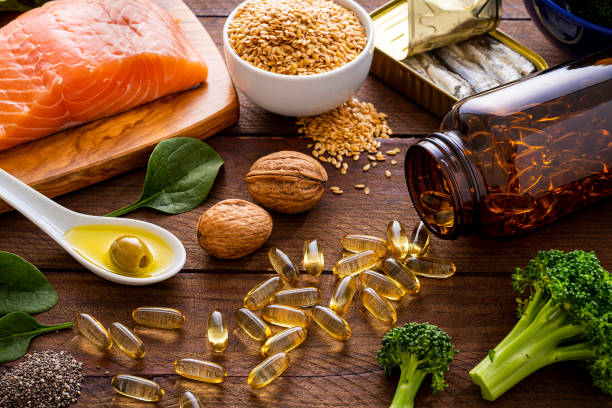
Benefit in diabetes and pregnancy 
Benefit in diabetes and pregnancy -
Omega-3 fatty acid-rich diets can help prevent cancers including prostate, breast, and colon cancer. Studies have shown that taking supplements of omega 3 fatty acids along with prescription drugs helps speed up the treatment of cancer. Chia seeds are a great source of omega 3s and can lower your risk of developing cancer. Compared to chia seeds, chia oil has higher omega-33 fatty acids. Studies showed that omega-3 fatty acids from chia oil reduce the size of the tumor and also increase the rate of apoptosis and T-lymphocytes. This oil helps in treating cancer.
Omega 3 fatty acids have peculiar characteristics. It has the capacity to prevent a number of ailments as a result of these qualities. One such condition is rheumatoid arthritis. Omega 3 fatty acids' anti-inflammatory qualities help them avoid rheumatoid arthritis. According to a human study, ingesting omega-3 fatty acids for three months can assist to lessen rheumatic symptoms. Therefore, those with rheumatoid arthritis should take omega-3 fatty acid supplements. One tablespoon of chia seeds provides 2.5 g of alpha-linolenic acid. As a result, those with rheumatoid arthritis can also benefit from chia seed oil.
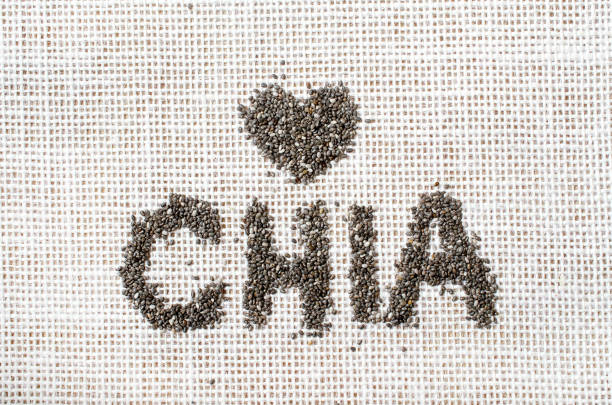
Protect from cancer and benefit in rheumatoid arthritis 
Protect from cancer and benefit in rheumatoid arthritis










